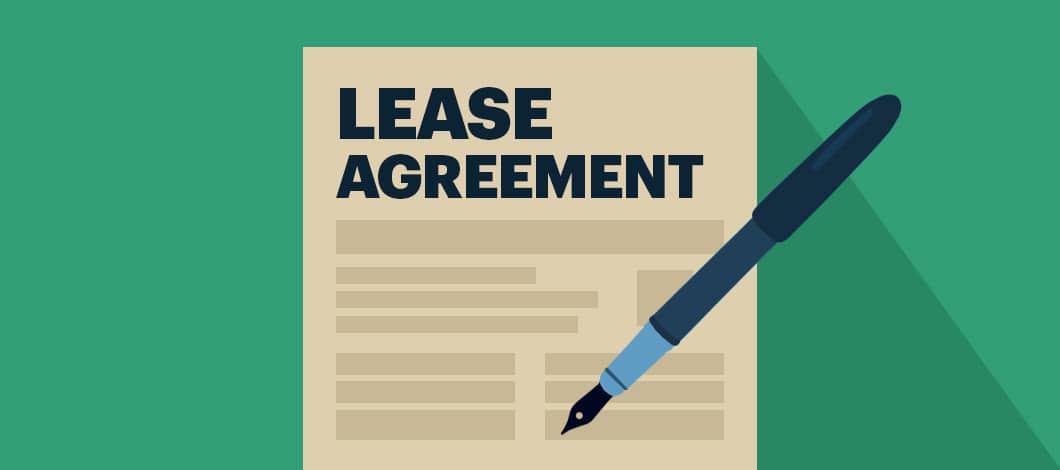Knowing how to negotiate a commercial lease can save you money and prevent legal hassles.
Here are 12 top negotiating tips. We’ll walk you through how to set negotiating goals and how to get the information you need to negotiate from a strong position. We’ll share strategies for negotiating key items such as rent fees and renewal conditions. We also will talk about the importance of considering multiple options so you can afford to walk away from a bad deal if you need to.
1. Determine Your Priorities and Budget
Negotiating a commercial lease can be done more effectively when you have clear goals and parameters.
Before entering negotiations, clarify items such as:
- What do you need in a lease which is non-negotiable (such as square feet, term length, termination clause, etc.)?
- What would you like in a lease which is desirable but negotiable (such as landlord coverage of utilities, parking space for employees, permission to do improvements, etc.)?
- What’s your budget?
Answering these types of questions will help you define how much room you have to negotiate in terms of both price and what you can afford to be flexible about without compromising your priorities.
2. Consult Professional Advisers
Lease contracts involve technical terminology that can be difficult to understand without experience, so it’s advisable to get professional advice about what to look for when leasing commercial property and how to secure a commercial lease with favorable terms.
Professionals you can consult include:
- Tenant representation brokers: real estate agents who specialize in representing tenants in negotiations
- Real estate attorneys: lawyers specializing in real estate law
- Architects: specialists who oversee planning, design and construction of buildings, relevant if you’re considering building on a property or making major improvements
- Construction professionals: building companies may provide relevant input if you’re planning on building on a leased property
- Space planners: advisers who specialize in how to use space effectively to achieve desired goals
- Interior designers: advisers who provide consultation on how to make interior space functional, safe and aesthetically pleasing by analyzing space requirements and planning essential items and decorations
Getting input from these types of experts can help you understand your rental needs as well as the terms of your lease contract.
Professional consultants can also assist you in other ways. For example, a tenant representation broker or real estate attorney can help you draft a rent reduction request letter for business. Some do-it-yourself legal sites such as Nolo and Rocket Lawyer provide free commercial lease advice and tools.

3. Understand Commercial Lease Options
Knowing how commercial leases are structured can help you interpret contacts and understand what’s under negotiation. Commercial lease options come in a few major varieties which are distinguished by how you pay your landlord and what your rental costs cover.
Rental payments can cover either your base rent, which is the part of your rent that goes directly toward paying for space or incidentals, which include items such as property taxes, insurance and utilities.
Based on the distinction between base rent and incidentals, typical commercial lease terms can be divided into:
- Gross rent leases, where you pay your landlord a single amount to cover both base rent and incidents or, in a modified gross rent lease, you and your landlord split specific incidental costs
- Net rent leases, where you make lower rent payments to your landlord but you become responsible for certain incidentals
- Percentage rent leases, in which you pay base rent plus a percentage of your total sales (often used in multitenant commercial real estate locations such as malls)
Net rent leases come in several varieties:
- Net leases, where you typically pay base rent plus one major incidental (usually property taxes, insurance or utilities) and your landlord covers other incidentals
- Double net leases, where you pay base rent as well as property taxes and insurance
- Triple net leases, where you pay base rent, property taxes, insurance and utilities as well as additional operating and maintenance costs
Review your contract carefully so that you understand the type of lease you’re signing and what your rental fees will cover.
4. Research Market Lease Rates
Knowing what the going rate for rent is in a given location puts you in a better position to negotiate. If you know there are other properties available in the area for less, you have more leverage. A commercial real estate agent can help provide you with current rates.
5. Research Properties
Researching individual properties can provide you with valuable negotiating information and help you steer clear of bad deals.
Visit sites to visually verify square footage and layouts. Study local traffic patterns and parking availability. Talk to current or recent tenants about their experience with the landlord. Check if there are any competing businesses in the area. Talk to neighboring business owners about their experience of the neighborhood.
6. Negotiate Base Rent
Landlords often ask more for base rent than they’re willing to settle for, so asking for a lower base rent should be a major item on any commercial lease negotiation checklist. You may be able to bargain for a lower base rent by getting your landlord to alter other contract terms.
For example, you may be able to negotiate a lower base rent by offering to pay property taxes, insurance or utilities. Adjusting your base rent is one of the most effective ways to cut your total rental costs, making this a cornerstone of negotiating commercial rent reduction.
7. Consider Long-Term Contracts
Another tactic for negotiating a lower base rent is agreeing to a longer-term contract.
A contract with a longer term offers a landlord more financial security, giving them an incentive to lower your rent. Alternately, you might ask for a short-term lease contract with an option to renew for a slight but low rent increase.
8. Ask About Tenant Inducements
Your list of questions to ask when negotiating a commercial lease should include asking about inducements. Inducements are incentives that landlords offer to encourage rentals.
Often, landlords will offer inducements if they’re having difficulty renting a location. For example, they may offer several months of free rent or agree to finance the cost of improvements. Ask your prospective landlord if they offer any rental inducements for tenants.

9. Review Your Cure Period
When you default on a condition of your lease, your lease may contain provisions that allow you to remedy the situation, known as curing it.
For example, your lease may allow you a certain number of days to make a late rental payment after the due date. Be clear on what your cure period is for late payments and other key items, and negotiate if you feel you need a longer period.
Also, consider what cure period your lease allows for situations when the landlord defaults on their obligations. For example, your lease may specify how long the landlord has to address certain maintenance issues.
10. Review Renewal and Termination Conditions
Your contract typically will contain specifications regarding renewing or terminating your lease. For example, it may give you the option of renewing your lease after a set amount of time, or it may prescribe penalty fees for terminating your lease early. Review any renewal or termination conditions and make sure they’re what you want before signing anything.
11. Discuss Leasehold Improvements
When you’re considering a property, you may notice that it needs certain improvements. Or maybe you want to leave open the option of making improvements down the road. In this case, you should address improvements in your contract.
Does your lease allow you to make improvements? If so, who pays for them, you or the landlord? Is the landlord willing to finance improvements or reimburse you?
Get clear on these issues before signing your lease, and negotiate any items where you’d like your landlord to consider different terms.
12. Consider Multiple Locations
If you’re only looking at one location, it gives you less leverage because you don’t have any other options. To put yourself in a stronger bargaining position, look at multiple locations before negotiating a lease. Your landlord may be more flexible if they know you’re considering other properties.
Use Lease Negotiation Strategies to Win a Better Deal
Effective lease negotiation is informed by:
- Careful consideration of your goals
- Understanding of lease contract basics
- Input from professionals and property research
Arming yourself with these tools positions you to negotiate elements such as base rent, long-term contracts, tenant inducements, cure periods, renewal and termination conditions and lease-hold improvements. Considering multiple locations allows you to negotiate from a stronger position that lets you walk away from a bad deal.
Lease payments represent one of your biggest business expenses. Consider your options carefully to find the right lease for you. If you need help financing your lease, consider taking a few minutes to fill out our free, no-obligation prequalifying form and see your loan options.










